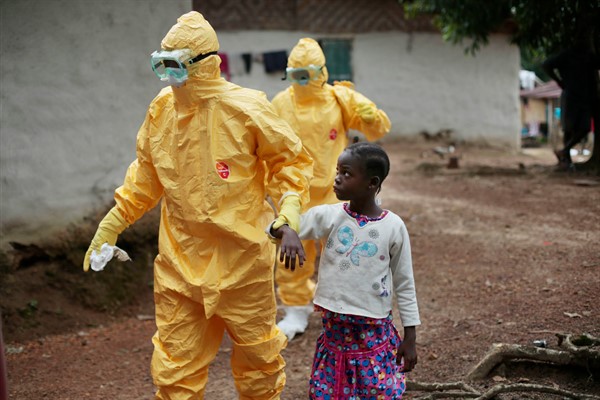Across West Africa, the COVID-19 pandemic is bringing back painful memories of the Ebola epidemic, which spread from the remote forest region in Guinea to Liberia and Sierra Leone, infecting over 28,000 people and claiming the lives of more than 11,000 from 2014 to 2016. As the region grapples with a new virus, have civil society groups and policymakers applied the lessons they learned from Ebola to the fight against COVID-19? Or are West African countries repeating the same fatal mistakes?
With so much public mistrust of the governments in Guinea, Liberia and Sierra Leone, local human rights groups and community organizations were invaluable in the response to Ebola due to their credibility, local knowledge and extensive volunteer networks. With little support, these groups educated their communities on modes of prevention and hygiene practices to help break the chain of transmission; challenged the stigmatization of Ebola survivors, especially women and children; and supported their reintegration into communities.
However, the early response to Ebola was largely top-down and heavily militarized, and it didn’t create space for local participation and management. It took a deadly protest in West Point, an informal settlement in Monrovia, Liberia, for governments in the region to change tack.

